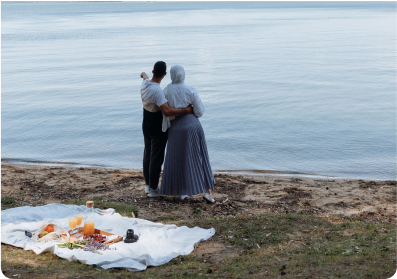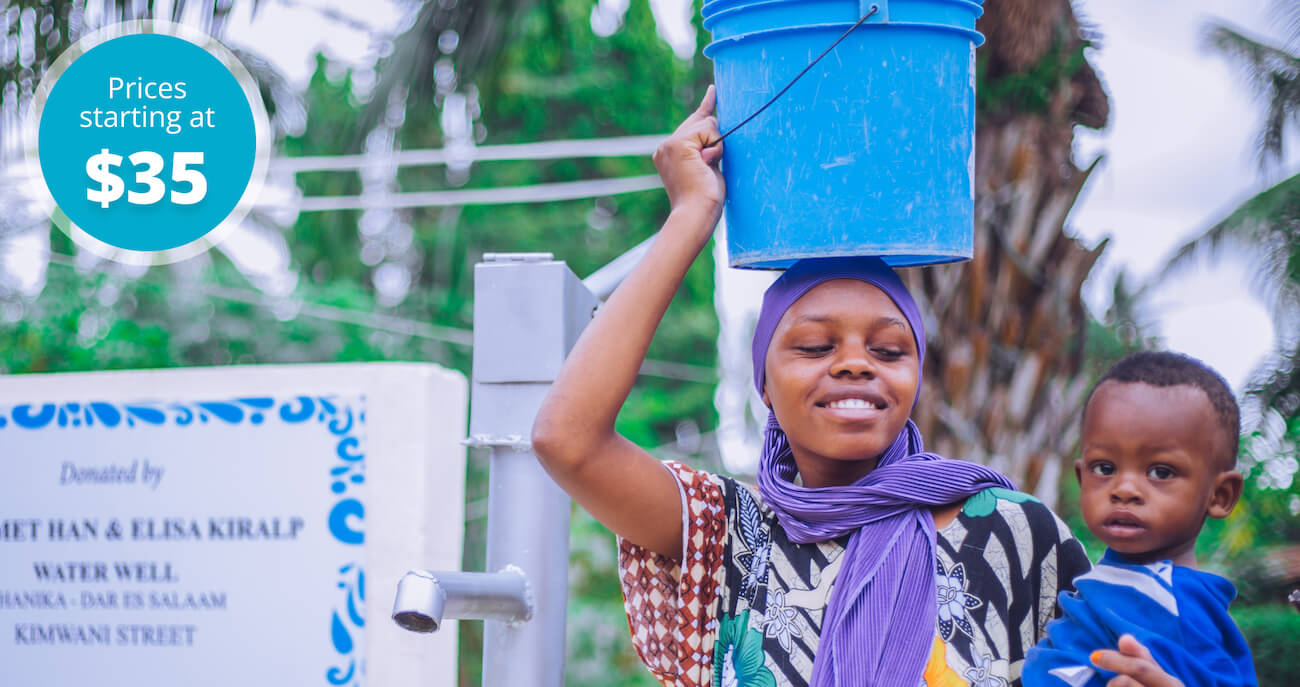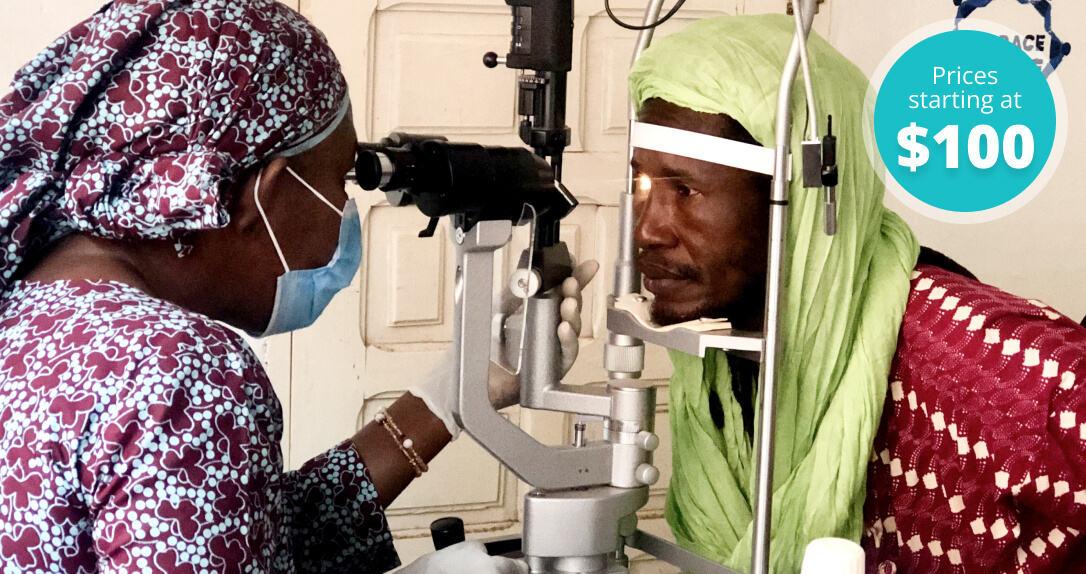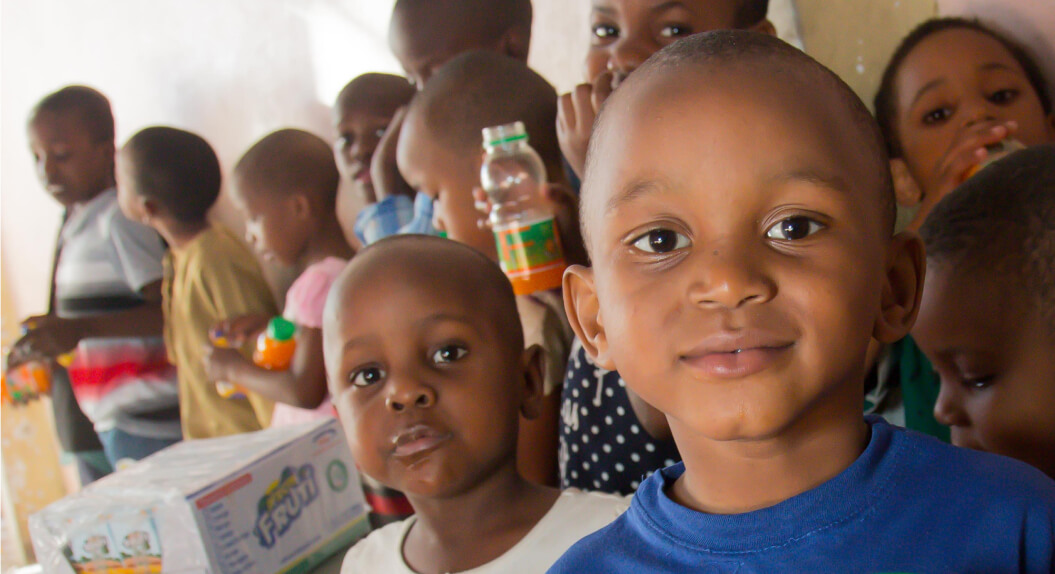
A refugee family’s journey to freedom: Face-to-face with death
Zeynep clung to her two-year-old child as she gingerly placed one foot in the tiny boat. The fierce, wavy current of the Meriç River lapped at her heels as she took this last step towards freedom. But after a moment of struggle, she and her husband Mohammed realized that she was sinking into the river.
“There were so many waves, and it was so long and deep, and we cannot swim very well,” Mohammed recalled. “[This was] the first time we came so close to death.”
Zeynep and Mohammed knew that they risked their lives crossing the Meriç. It was a risk they took because the persecution they faced in their home country of Turkey was no longer bearable. But they also knew that, in the event that things went wrong, the only thing that mattered was the life and safety of their child.
That is why Zeynep gave her baby to a friend, the fourth member of their party, who had already entered the boat. As she did, she implored him: “Please just help us, just save our baby. We are not important. Just take our baby, please.”
Eventually, the danger passed. After a short while, Mohammed safely climbed into the boat. Then, he and the friend pulled Zeynep safely into the boat. They were far from safe. But they were together, and they were on their way to their new life.
Zeynep and Mohammed are just two of the thousands of people who have benefitted in recent years from Embrace Relief’s Refugee Relief program in Greece. Through the generous support of our donors, refugees in our program have been provided with housing, food, clothing, education and other necessities, providing these determined people the time, safety and stability they need to rebuild their lives.
Embrace Relief recently journeyed to Greece to meet with some of the refugees who are currently supported by our program. Speaking with us, they described the hardships they endured in their old lives, the risks they took in escaping those hardships, and the love, hope and faith that guided them through their journeys. Their powerful, emotional stories are reminders that we are all human. And their stories deserve to be told.
An uncertain journey
For the more than 5,000 refugees who fled to Greece across this border river in 2022 – Meriç is its name in Turkish; it’s also known to the Greeks as the Evros, and to the Bulgarians as the Maritsa – danger is ever-present. The river is wide at points, and deep. The boats used to transport people across the river are small, and at risk of capsizing in choppy, rough waters like those facing Zeynep, Mohammed and their child. Hundreds of people have died making this very journey over the last two decades.
But turning back was no option. Facing persecution in their home country, Mohammed and Zeynep decided that their only choice was to accept the risk and pray, with faith that they would reach the other side safely.
“When I saw the Meriç, I knew it was the only way to freedom,” Zeynep says. “But there is always a risk of death which we have seen very closely.”
From beginning to end, the journey of a refugee is fraught with danger. All of the refugees who spoke with Embrace Relief described the sense of fear they felt living in their homes, facing both the official sanction of the local government and the unofficial (but no less heartbreaking) shunning from family members and friends.
Those who are able to leave face an uncertain journey. Walking on foot or squeezing into tiny boats, they are vulnerable, unprotected from dangerous weather and unfamiliar terrain. They are at the mercy of anyone they encounter along the way, ranging from kind strangers, to border patrols and military police, to dangerous bandits and gangs.
‘Don’t look back’
Mohammed and Zeynep’s journey had only just begun once Zeynep finally made it into the boat on that choppy fall day. After crossing the river without incident, they continued on foot. Their baby wailed as the party of four climbed up steep hills full of trees and rocks for several kilometers. Zeynep’s arms and legs were bleeding from the climb, and their baby’s nose began to bleed as well.
Then, suddenly, they were spotted by a soldier. Carrying an intimidating baton, the soldier directed the group to come with him to the top of the hill, where a group of 10 soldiers guarded them. When they realized the soldiers were members of the Greek police force, it was a welcome moment of comfort.
“My husband told me to not be afraid because it was the Greek police, not a gang,” Zeynep says. “We [would] have one chance to explain ourselves well. We are trusting democratic Greece.”
After discovering that the soldier, like himself, spoke English, Mohammed felt assured enough to engage in an hour-long discussion, explaining the family’s situation and pleading for mercy.
“I told him, we are neighbors, we are not escaping a war, we are not escaping economic issues, or things like this,” Mohammed said. “We are coming for freedom, and if you deport us or push us back to our region, they will arrest us, maybe they will kill us.”
At this, the soldier put away his baton. As a smile came across his face, his voice turned kind and sincere. He said a sentence that Mohammed and Zeynep will never forget as long as they live:
“Don’t look back. Don’t look behind you. You are here, you are in Greece, and you are safe.”
Make a Year-End Impact with Embrace Relief!
As we head into the 2024 holiday season, you may be considering a charitable donation to help those in need. And there's no better place to make a real impact on the lives of real people than with Embrace Relief! Our Year-End Giving Campaign 2024 offers you three powerful programs to make your generosity count. Your gift can provide clean water, sponsor a cataract surgery, or provide critical care for orphaned children. Select the program you would like to support and make a life-saving donation today!























